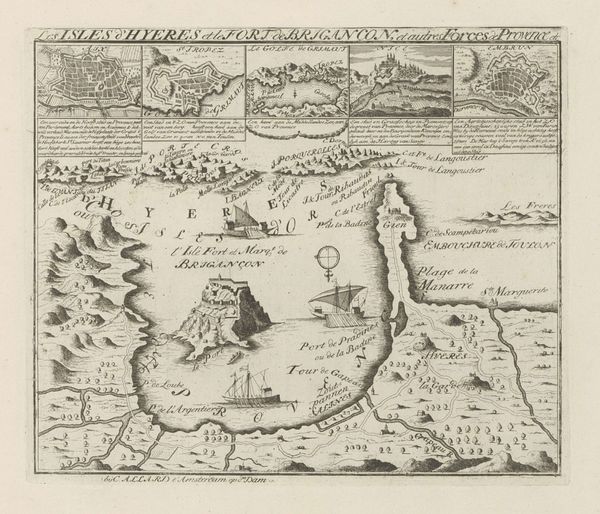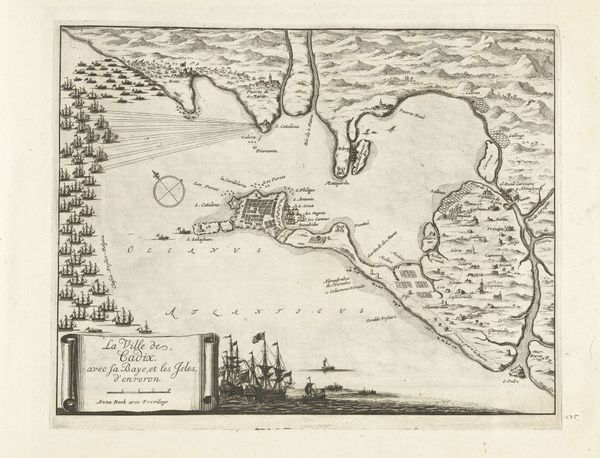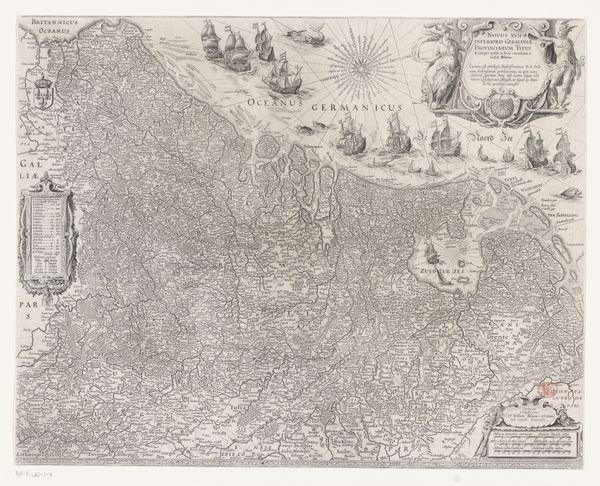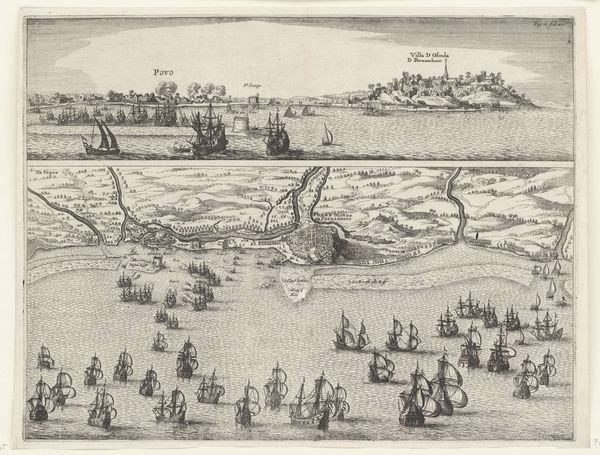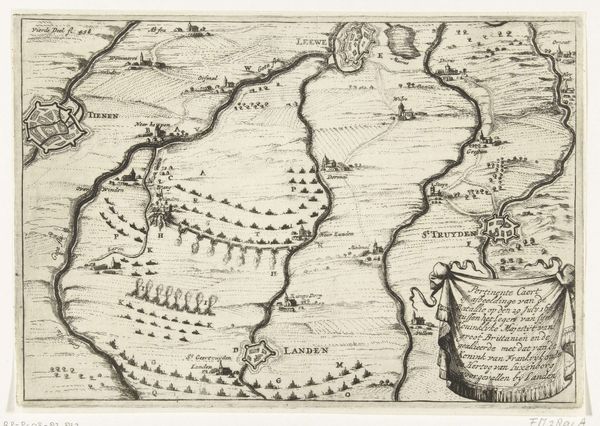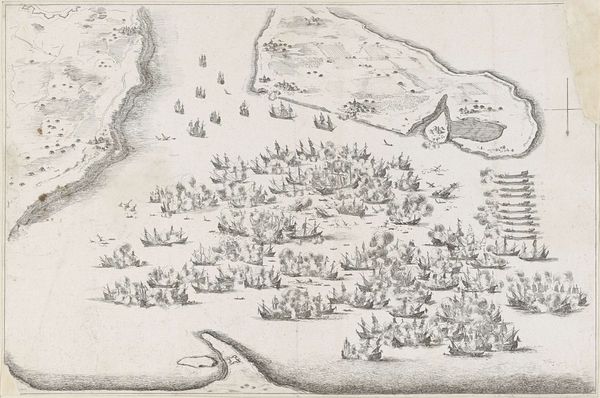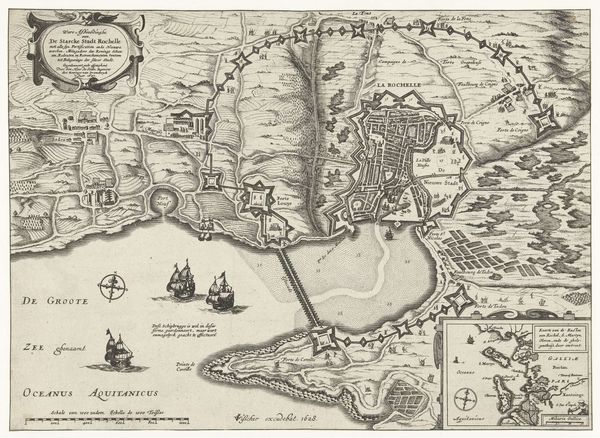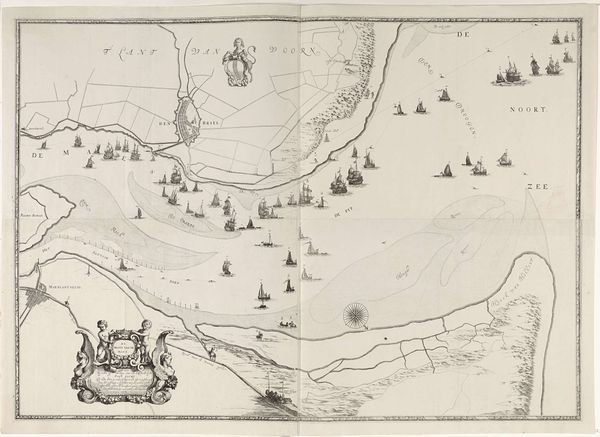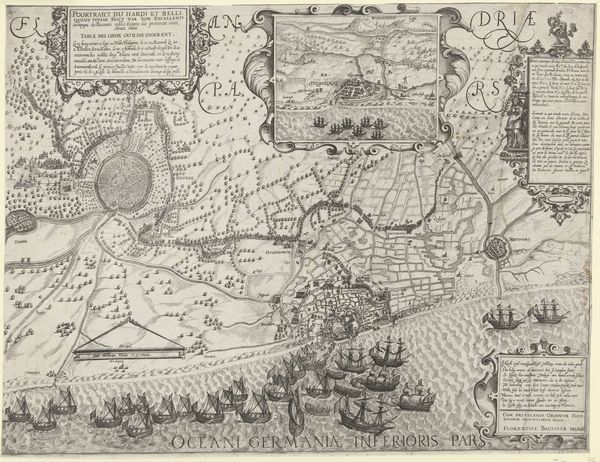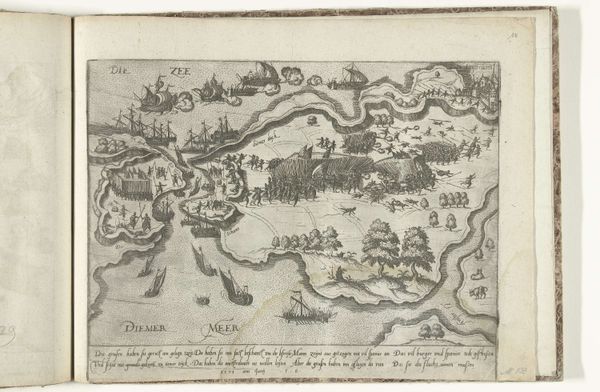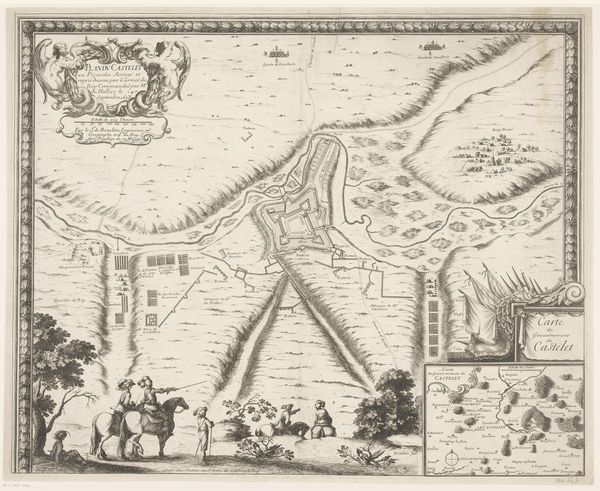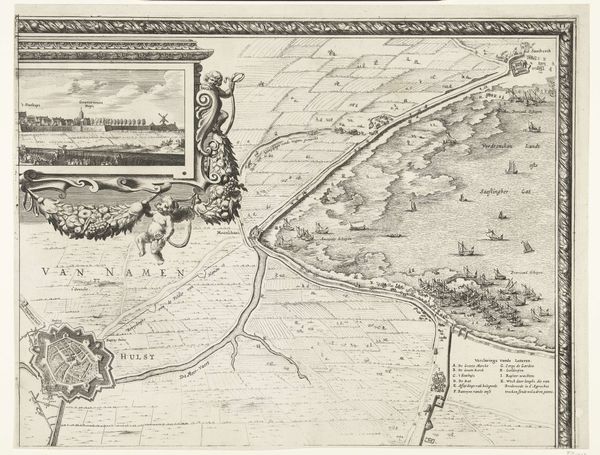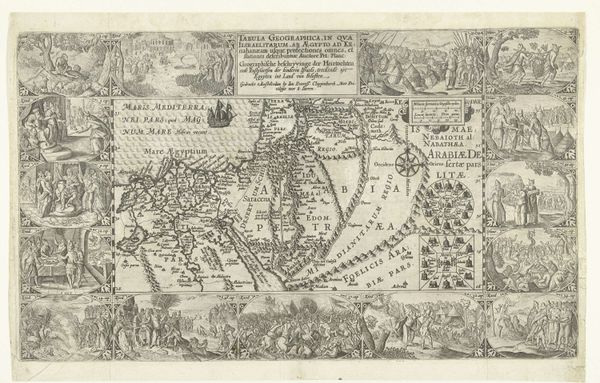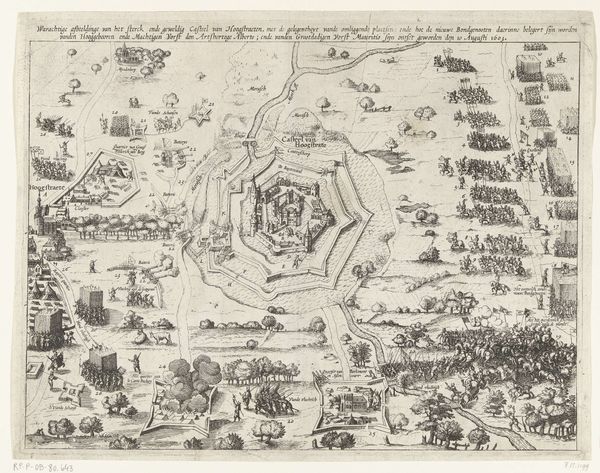
Portugese suikeropbrengsten buitgemaakt in de Bay de Tode los Santos, 1627 1649 - 1651
0:00
0:00
anonymous
Rijksmuseum
print, engraving
#
baroque
# print
#
landscape
#
line
#
cityscape
#
history-painting
#
engraving
Dimensions: height 286 mm, width 379 mm
Copyright: Rijks Museum: Open Domain
This detailed print, made by an anonymous artist, depicts the seizure of Portuguese sugar yields in the Bay de Tode los Santos in 1627. It was likely made using etching or engraving, processes that involve incising lines into a metal plate, inking it, and then pressing it onto paper. Look closely, and you’ll notice the crisp lines and fine details, typical of these printing methods. But it is the image itself that is most telling. This print isn’t just a picture, it's a document of value extraction. The ships are there to do a job – transporting sugar, a commodity produced by enslaved labor. The smoke and violence speak to the brutal realities of colonialism. While seemingly delicate, the print material is intrinsically connected to the history of exploitation and trade that defined the 17th century, underscoring how art can be deeply entwined with power and profit.
Comments
No comments
Be the first to comment and join the conversation on the ultimate creative platform.
